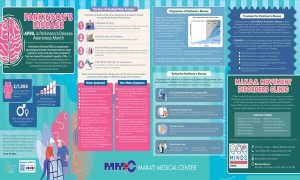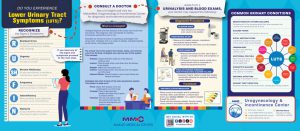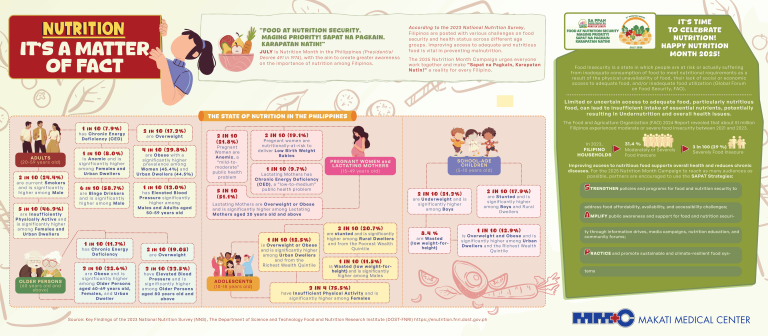Food is a basic need and a primary source of nutrition. But more than that, food is a cultural marker that binds communities and generations. People across the globe share sumptuous dishes with friends and family regularly, both for sustenance and enjoyment.
Unfortunately, many health conditions are also caused by food. That is why people need to be vigilant with what they consume and follow a personalized and specific diet to stay healthy.
Common Health Conditions That Need a Special Diet
- Allergies – Protein in common types of food trigger an immune response through allergies. They usually occur within minutes after ingestion. Anaphylaxis, a severe allergic reaction, is possibly life-threatening; therefore, strict avoidance of certain types of food is vital.
- Diabetes – It has two (2) major categories. The more common is type 2 diabetes, which is considered a lifestyle disease. Factors such as excessive calorie and sugar intake exacerbate the onset of this disease. Dietary restrictions, such as cutting down on sugar and carbohydrates, are required.
- Heart Disease – The underlying cause of heart attacks is arteriosclerosis. It is a disease triggered by the accumulation of plaque on the artery walls’ inner lining. This buildup comprises fatty deposits and cholesterol, so a diet low in animal fat sources and rich in fiber may be beneficial.
- Celiac Disease – This is a rare condition where a person’s body cannot properly process gluten, resulting in symptoms that may include diarrhea, fatigue, weight loss, bloating, nausea, and vomiting. Types of food rich in wheat, barley, and rye such as bread, pasta, and beer are some of the common culprits. Consult with a Nutritionist-Dietitian, as well as a Gastroenterologist when experiencing any of these symptoms.
- Colitis – This disease is a chronic inflammation of the colon and rectum. Symptoms include frequent diarrhea and the sensation that the bowels are never completely emptied. Dietary adjustments could be of help, such as subscribing to a low-residue diet.
- Crohn’s Disease – This inflammatory bowel disease affects the digestive system. The recommended diet will depend on the severity of the disease, so it is best to consult a Nutritionist-Dietitian and Gastroenterologist.
- Hypoglycemia – This happens when blood glucose levels drop below normal. Symptoms may include headaches, cold and clammy skin, and dizziness. Fruit and crackers should be pantry staples for those chronically hypoglycemic.
- Irritable Bowel Syndrome (IBS) – Common symptoms include diarrhea, abdominal pain and cramps, and gassiness, among others. Carbonated beverages, cabbage, and high-fat food are some of the usual triggers to avoid.
- Gouty arthritis, cancer, and kidney disease also require a tailor-fit diet.
Healthy Foods for Someone with Special Dietary Needs
- Fruits and vegetables – Regular intake of fruits and vegetables can reduce the risk of diseases like stroke, high blood pressure, and digestive problems. It is also a viable treatment for diabetes and can even prevent some types of cancer.
- Grains – Consumption of whole grains has been linked to the reduction of health risks associated with cardiovascular diseases. It is also recommended for people living with diabetes and those at risk of colon cancer. Those who have celiac disease need to stay away from gluten-carrying grains such as wheat, rye, and barley.
- Dairy – Products such as milk and cheese promote bone health and curb the risk of osteoporosis. The elderlies are advised to consume a consistent amount of dairy to prevent bone fractures; however, those who are lactose-intolerant need to avoid dairy products and look for protein-rich food alternatives.
- Lean meat – This food source is loaded with iron and complete protein, beneficial to those living with hypoproteinemia (abnormal low protein level) and anemia.
- Seafood – Eating fish rich in omega-3 such as salmon and other deep-sea fish is linked with decreased susceptibility to heart disease, stroke, and even depression. It is also recommended to the elderlies for the prevention of mental decline. However, keep in mind that seafood is one of the most common causes of allergies.
- Legumes and beans – These contain antioxidants that can help prevent cell aging and damage. Regular consumption is also linked to a reduced risk of high blood pressure, heart disease, and diabetes.
- Nuts and seeds – This is another food source that has beneficial effects for those with diabetes and heart disease. Eating nuts and seeds can also facilitate weight regulation. Stay away from nuts and seeds if they trigger allergic reactions.
- Tofu – This is an excellent alternative to meat protein sources and reduces the risk of osteoporosis, coronary heart disease, and elevated cholesterol levels.
- Olive Oil – This is the powerhouse among all cooking oils, offering health benefits to those living with diabetes, high blood pressure, and high cholesterol levels.
- Wine – Moderate red wine consumption may prevent the onset of heart attacks, thanks to the antioxidants present in this beverage.
Know Thy Food
This should be the mantra for all health-conscious individuals; if complemented by a heightened awareness of the body’s unique reaction to certain food types, the better.
Conscious eating is akin to mindful breathing. It promotes health and wellbeing. That does not mean spending hours at the grocery store reading nutrition labels of products before taking them to the cashier. A better alternative is skipping food products that require a nutrition label in the first place.
Nutrition is crucial to those who suffer from health conditions. With food sensitivities also on the rise, it is important to focus on what we eat to avoid adverse reactions. When it comes to dietary requirements, it is always best to consult an expert. This not only keeps our condition in check but also promotes a balanced diet for overall health and wellness.
To those living with health conditions requiring a special diet, please reach out to the Makati Medical Center to know how you can customize a medical diet with the help and guidance of our Nutrition Experts and Physicians.











